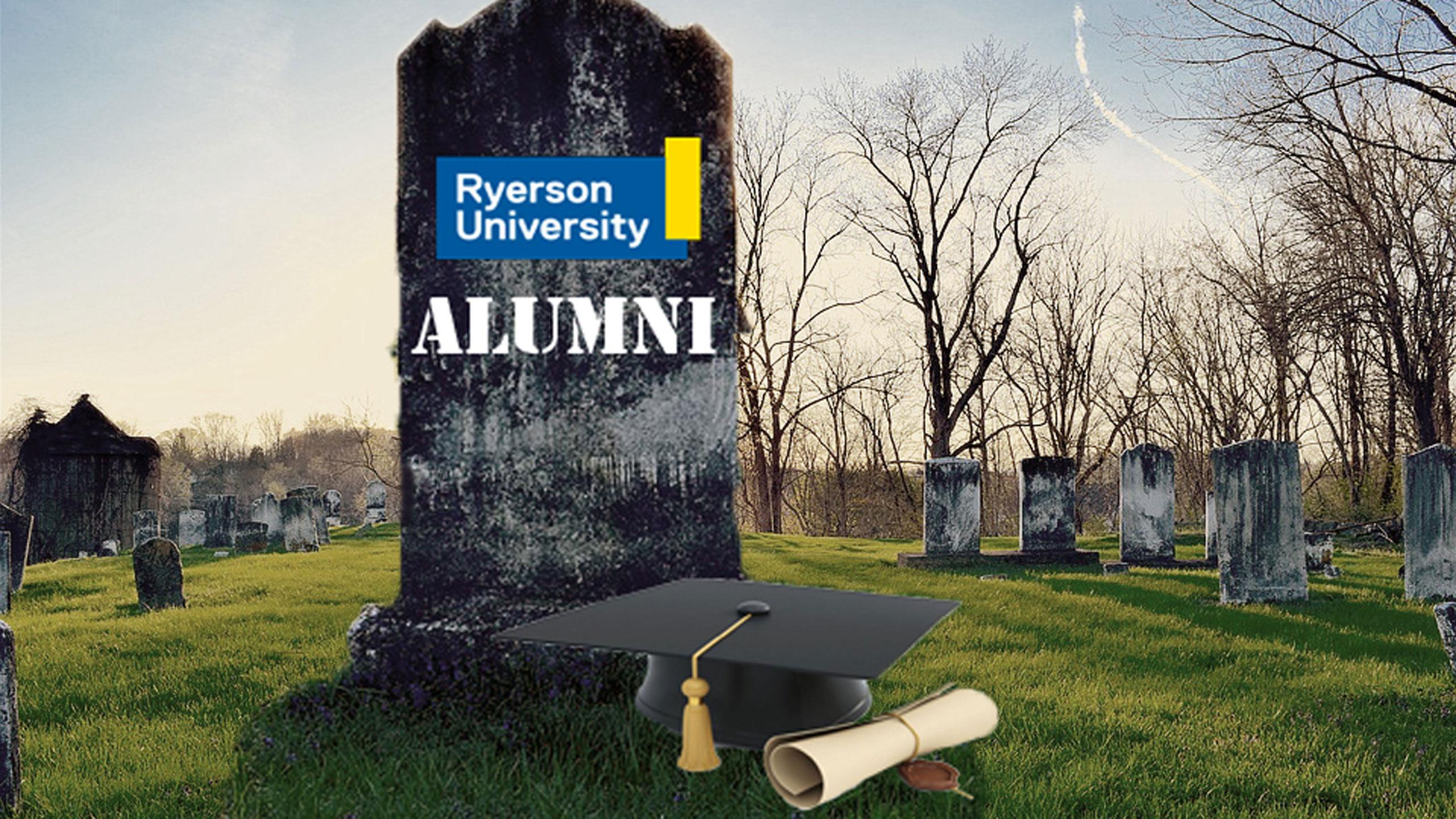By Julia Nowicki
Given Ryerson University’s extensive relationship with graduates that spans decades until their inevitable end, you may be surprised to learn that when an alumnus dies, nothing much really happens.
The University Advancement office and Alumni Relations at Ryerson are responsible for maintaining a connection with graduates once they leave the cherished streets of Gould and Victoria.
Like many colleges and universities, these offices provide valuable services to alumni by organizing events and mixers, granting awards and updating you on the successes of former classmates.
However, as much as you value the wonderfully unique relationship you have with the university and their email subscription service, the feeling may not be mutual. When you die, there is no big ceremony or a widely-broadcast ‘in-memorandum’. The university just simply updates their database.
“When we do learn of the sad news of an alumni dying, it is recorded in our database by the University Advancement office; deceased alumni are removed from any correspondence unless otherwise requested by their surviving spouse or relative,” according to the president’s office via email.
Take comfort in knowing that at the end, when you leave the face of the Earth, you will also be removed from, what I assume, is a pretty extensive email list.
According to the president’s office, there are usually a few ways Ryerson finds out about the passing of an alumnus. In most cases, the university finds out about your death through a spouse or relative who contacts the university to have them discontinue email updates.
The university may reach out directly and inquire as to why donation flow has stopped from your particular account.
In other cases, the university may find out about your death “during a regular obituary scan performed by the University Advancement Services Team.” Think of Phoebe Buffay’s grandmother updating the phone book, red pen in one hand and obits in the other.
Hilde Allman is a Ryerson alumna who graduated from the Secretarial and Administrative Studies program in June of 1982 when the university was still called the Ryerson Polytechnical Institute. In fact, Allman’s graduating class was one of the first to receive degrees rather than diplomas or certificates. The close-knit community and the connections she forged at the once tiny university are what make her such an avid and contributing alumna.
“I like that the program exists and I can still contribute to the university,” Allman said. “They do rely on a lot of public funding as well as government funding. I feel proud that I still sponsor them.”
Allman hopes to continue donating and contributing to the school for years to come until she passes. At that point, she acknowledges that the consolation will probably be lackluster.
“The one thing about Ryerson that is good is that they do acknowledge the passing in their magazine sometimes,” Allman said. “But, I guess they will just stop getting my donation.”
Those who do are deeply entwined in their alma mater and wish to maintain those connections forged through years of newsletters and donation postcards can take comfort in knowing they can continue their relationship with the university in their afterlife.
An alumnus has the option to continue correspondence with the university by enlisting unsuspecting relatives to regularly check their email inbox, and send donations.













Leave a Reply